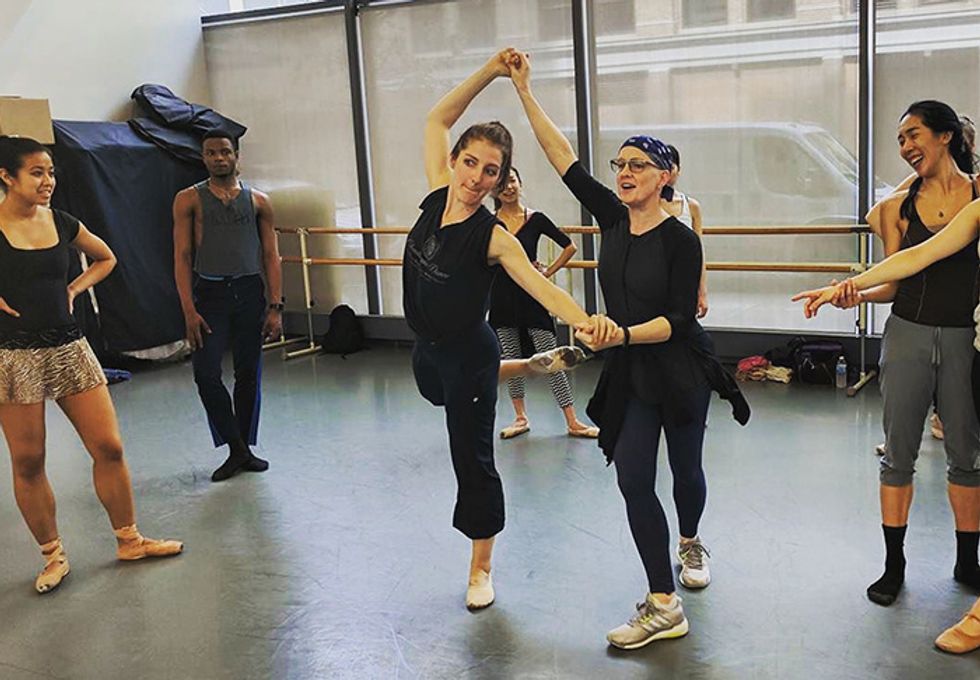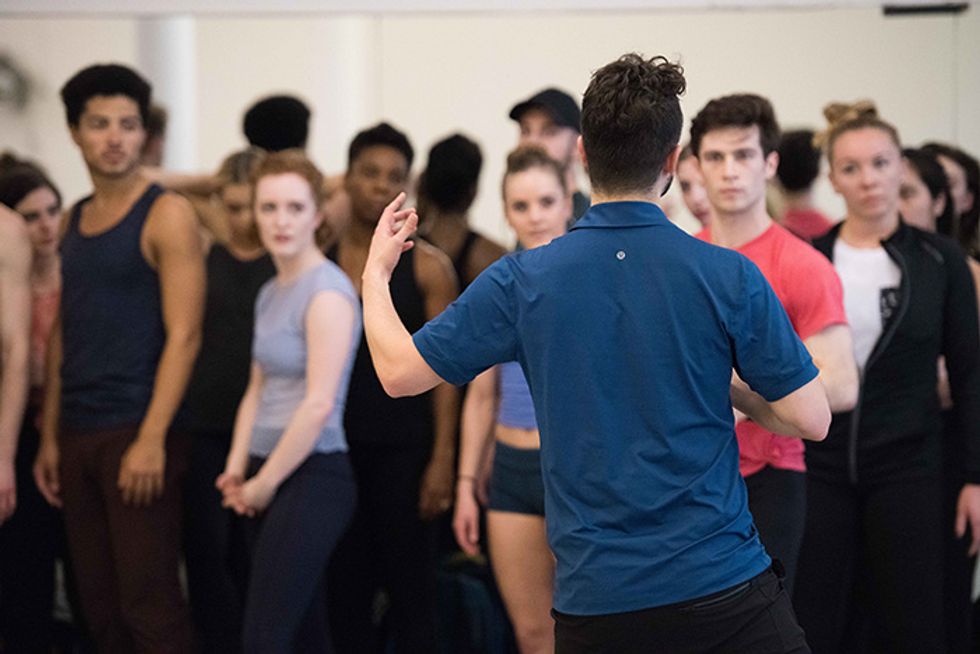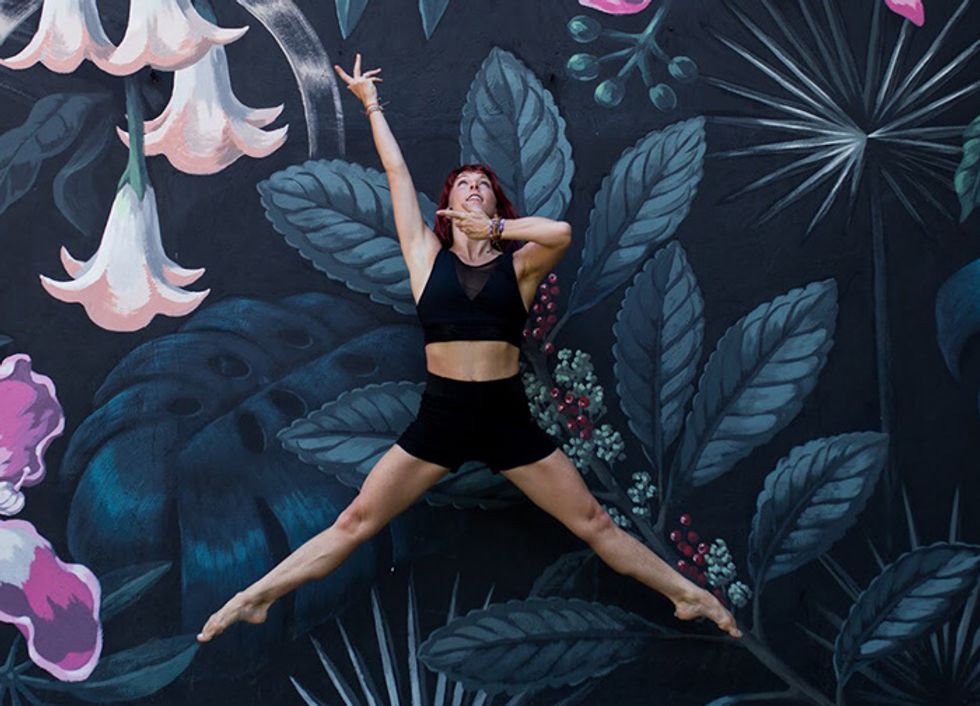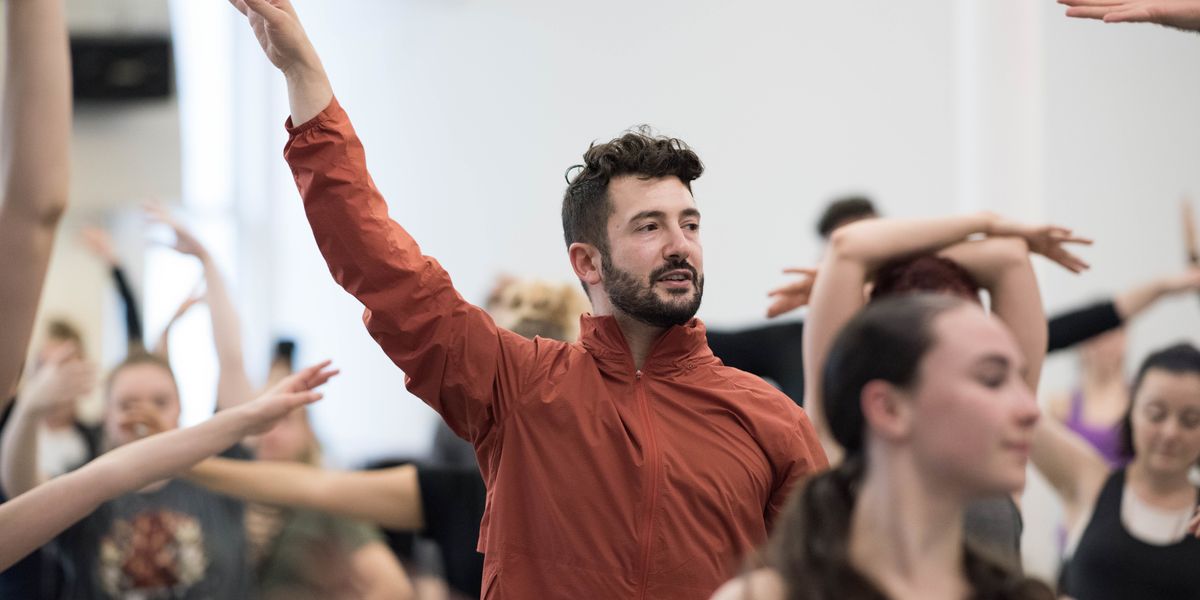The Case Against Versatility: Why Being A Jack-of-All-Trades Dancer Won't Help You
These days, everyone tells you how important it is to be versatile. But what if you’re convinced there’s just one style that’s right for you? It can be tough to balance a deep interest in a single specialty and still meet many choreographers’ expectations. Luckily, you don’t have to choose between all in or all over the place, as long as you follow your interests thoughtfully.
Take Time to Find Your Style

Julia K. Gleich suggests branching out to discover what you don’t want. Photo courtesy Brooklyn Ballet
When you’re young, study a little of everything—that’s how you’ll figure out what you like to do and where you really shine. No one technique can provide everything you need, says Julia K. Gleich, founder of contemporary ballet company Gleich Dances and a frequent teacher at Peridance Capezio Center. “If you’re confined to a single aesthetic, you’re missing out on a wider vision of the world that informs your art.”
Ask yourself if you’re being stubborn about specializing just to stay in your comfort zone. “If you’re sticking to a single technique out of fear of the unknown, you’re in trouble,” says Gleich. Choreographer Al Blackstone agrees: “You may think you know what you want, but allow yourself to be wrong,” he says. You may even choose to diversify your training to be sure that your specialty is the style for you. “You need knowledge of other forms to understand your own better and know what you don’t want to do,” says Gleich. “So if you’re convinced you want to pursue Balanchine, take class from a few Cecchetti teachers, too.”
Dive Into Forms That Excite You

Al Blackstone says dancers should remain open to opportunities. Photo by Daryl A. Getman, Courtesy Blackstone
As you prepare to enter the professional world, you shouldn’t continue to check every box just for the sake of being versatile—you’re far more likely to be successful if you allow yourself to get drawn into the styles that interest you. “At some point you have to choose a direction,” says Blackstone. He felt like things started to click when he began studying regularly with Andy Blankenbuehler. “That was where I finally saw myself improving. I started taking any opportunity I could in musical theater—that parlayed into acting classes, singing lessons and, eventually, performing on Broadway.” Being focused brought professional success that eventually led to more diverse opportunities—Blackstone now splits his time between musical theater, commercial and concert dance styles.
There’s another practical benefit to specializing before you audition all over town: According to Blackstone, focusing on one road can help you build stronger relationships with choreographers in that discipline, which will help you land jobs. Choreographers may even be skeptical of someone who claims they have trained in all styles, says Ashlé Dawson, one of the top four competitors in the inaugural season of “So You Think You Can Dance,” who is known for teaching a blend of Latin, ballroom, street and commercial styles. “Even with my background, I still look at a resumé that lists 10 styles or a dancer who says ‘I do it all,’ and I think ‘But do you?’ ”
Keep Your Specialty Fresh

Ashlé Dawson is skeptical of dancers who say they “do it all.” Photo by Ale Carmona, courtesy Dawson.
Just because you’ve figured out what your focus is doesn’t mean you have to ignore all other techniques. “You have to be flexible, so that specializing doesn’t block you off from other opportunities,” says Dawson. “Even if you take just one other class a week, it’s not going to break your budget or hurt you in your chosen style. Adding that extra skill set could make you invaluable to a choreographer down the road.”
To decide what other styles will best inform your primary focus, look at dance history, says Dawson. “Try to find the connections between African dance and hip hop or Latin ballroom and Cuban dance,” she says. It’s more about your mind than your body, says Gleich. “Add this other ingredient to help you re-conceptualize the movement you already know. Give it new geometry, or find a new approach to phrasing.”
If you’re comfortably employed in your specialty, use that steady paycheck to keep expanding your horizons, says Blackstone. “The second I booked my first Broadway show, I signed up for a Gaga intensive,” he says. “Remain open to opportunities. You’d be surprised how many roads aren’t as unrelated as you might think.”
Remember that versatility can cut both ways: Being gifted in multiple disciplines can certainly make you more marketable, but Blackstone believes it’s rare to be successful in more than one style. The trick is to find your strengths and hone them, even as you try other things.




